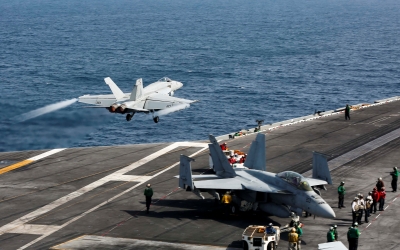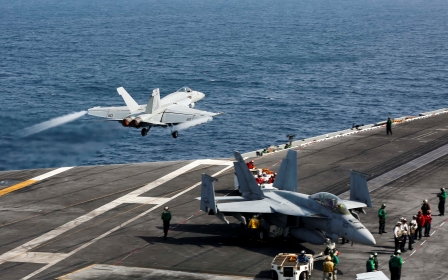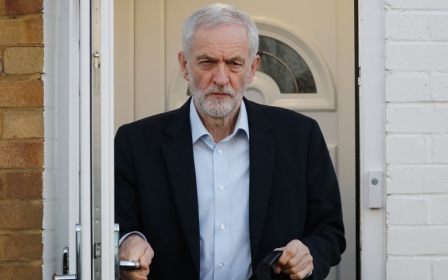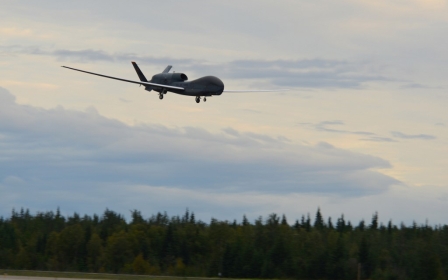Saudi intelligence chief lobbies London for strikes against Iran: UK source
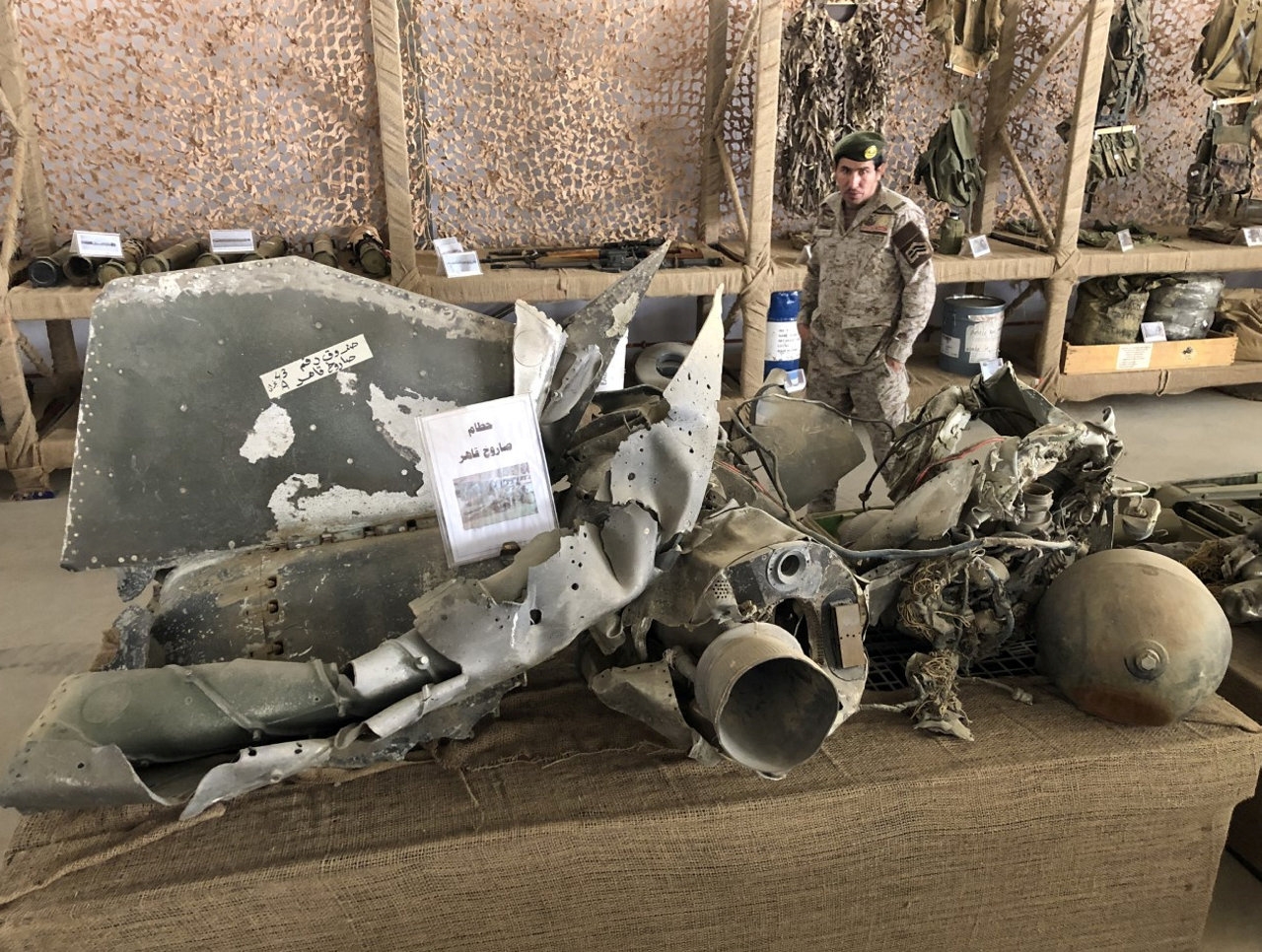
A Saudi intelligence chief pleaded with British authorities to carry out limited strikes against Iranian military targets, just hours after Donald Trump aborted planned US attacks against the Islamic Republic, a senior UK official told Middle East Eye.
The intelligence chief was accompanied by Saudi diplomat Adel al-Jubeir on his trip to London, the source said.
Still, the Saudi lobbying efforts fell on deaf ears, according to the source, who spoke on condition of anonymity because of the sensitivity of the subject.
"Our people were sceptical," the source said, adding that the Saudi official was told a plain "no" in response to the request.
New MEE newsletter: Jerusalem Dispatch
Sign up to get the latest insights and analysis on Israel-Palestine, alongside Turkey Unpacked and other MEE newsletters
The Saudi official also provided additional intelligence linking Iran to a recent attack on two oil tankers in the Gulf of Oman, but his British counterparts were "not impressed" with the new evidence.
The British government has already publicly backed the Saudi and American accusation that Tehran is behind the Gulf of Oman attacks.
"I condemn yesterday's attacks on vessels in the Gulf of Oman. UK's assessment concludes that responsibility for the attacks almost certainly lies with Iran," UK Foreign Secretary Jeremy Hunt wrote on Twitter on 14 June.
"These latest attacks build on a pattern of destabilising Iranian behaviour and pose a serious danger to the region."
According to the British source, the Saudi intelligence chief will head to Jerusalem at the weekend, where he will engage in similar lobbying efforts with Israeli officials and US National Security Adviser John Bolton, an anti-Iran hawk, who will be visiting Israel.
On Thursday, Israeli Prime Minister Benjamin Netanyahu reiterated his country's support for Washington against Iran.
"I repeat my call for all peace-loving countries to stand by the United States in its effort to stop Iranian aggression," he said in a video message posted on Twitter.
Aborted strikes
The news comes as Trump halted US strikes against Iranian targets 10 minutes before their launch late on Thursday. The military operation was planned in response to the downing of a US drone a day earlier.
Iran has blamed Washington for the incident, saying that the drone was over its territorial waters. Washington maintains that the unmanned plane was over international waters.
Tensions started to rise sharply early in May, as Washington deployed military assets to the Gulf amid intelligence reports of Iranian plans to hit US troops and interests in the region.
Since then, the US has blamed Tehran for a series of strikes in the region, including attacks on four ships off the coast of the United Arab Emirates on 12 May.
Riyadh has also pointed the finger at Iran for an increase in attacks by Yemen's Houthi rebels against Saudi Arabia. The kingdom has been locked in a four-year destructive war against the Houthis, which has caused an enormous humanitarian crisis in Yemen.
Saudi Arabia's Jubeir has denied that Riyadh is trying to draw the US into war with Iran, blaming Tehran for the recent tensions.
"That's ridiculous," he said in an interview with Sky News on Thursday, when asked about the claim.
"Saudi Arabia has made it very clear that we want to avoid war at all costs, so has the United States, so has the United Arab Emirates. The escalation has all basically been from the Iranian side, and we hope that they will change their behaviour, act like a normal country."
But last month, a government-aligned Saudi newspaper called for "surgical strikes" against Iran.
"Our point of view is that they must be hit hard," an Arab News editorial published on 16 May reads.
"They need to be shown that the circumstances are now different. We call for a decisive, punitive reaction to what happened so that Iran knows that every single move they make will have consequences."
The Saudi embassy in London did not return MEE's request for comment.
Middle East Eye delivers independent and unrivalled coverage and analysis of the Middle East, North Africa and beyond. To learn more about republishing this content and the associated fees, please fill out this form. More about MEE can be found here.



